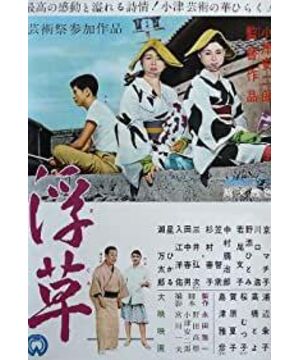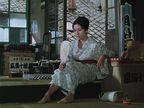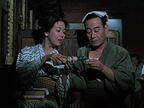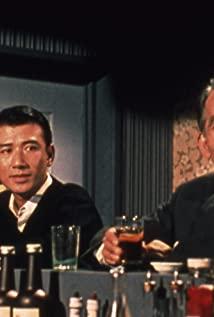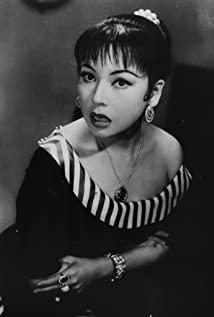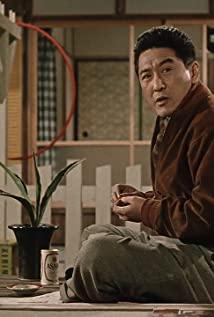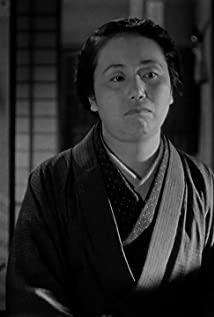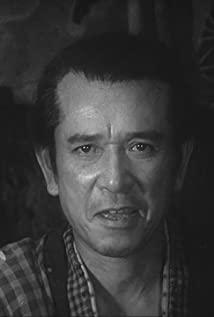This nearly two-hour movie, I bought it for 3 years and never watched it, I actually cried today.
Undoubtedly, this is mainly due to the entanglement of family affection in the play, but it is different from the passionate emotion when watching it. In the movie, the father and son have not been completed, so there is no magnificent sense of tragedy, but only lonely sadness. The troupe owner, Jujuro, finally lost his wealth and failed to recognize his son. His slightly swollen face, always smiling at the beginning, seems to have a strong impact on people's hearts. It can't be said that Ozu did not give the character the slightest hope. Facing the breeze, riding the train to a foreign land, drinking the small wine poured by the girl who loves him, it can be regarded as another departure in his life, just thinking about what he can only do. Continuing to wander in the future, his stagnant wry smile and understated self-comfort in front of his son, a sense of bleak still arises spontaneously.
A few lines near the end of the play by the superb female owner of the small hotel pushed this sense of sadness that can't be struggled to its peak. After a series of logical emotional entanglements, everything has returned to the indifference that is difficult to judge. This is the normal state of life, the essence of fate, but it happened to the protagonist of the wandering artist, because of the dust, don't add a floating life like a dream. trance.
Although the background of the story is in the fish village, the scenes are mostly simple and simple, but the lighting, clothing, neatly stacked stone walls and gorgeous plants, the bright makeup of the woman, and the subtle details such as small pieces of paper floating in the air are still given to the picture. The deep poetry, especially the light blue lamp hanging in the tavern, is quiet and quiet, like a picture.
Another: Wakao Fumiko is really beautiful.
View more about Floating Weeds reviews


